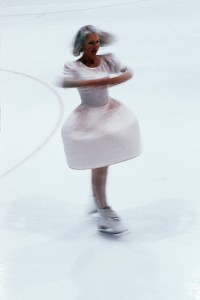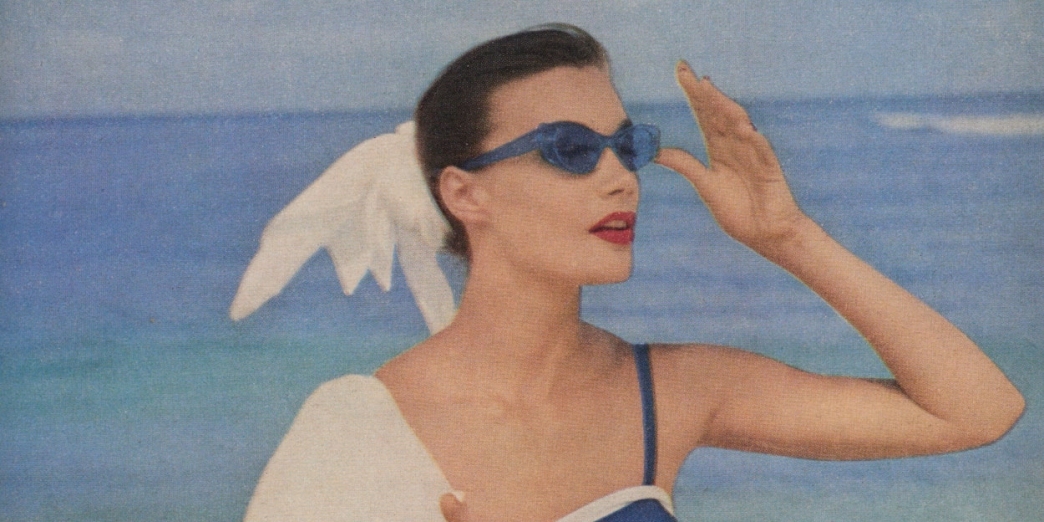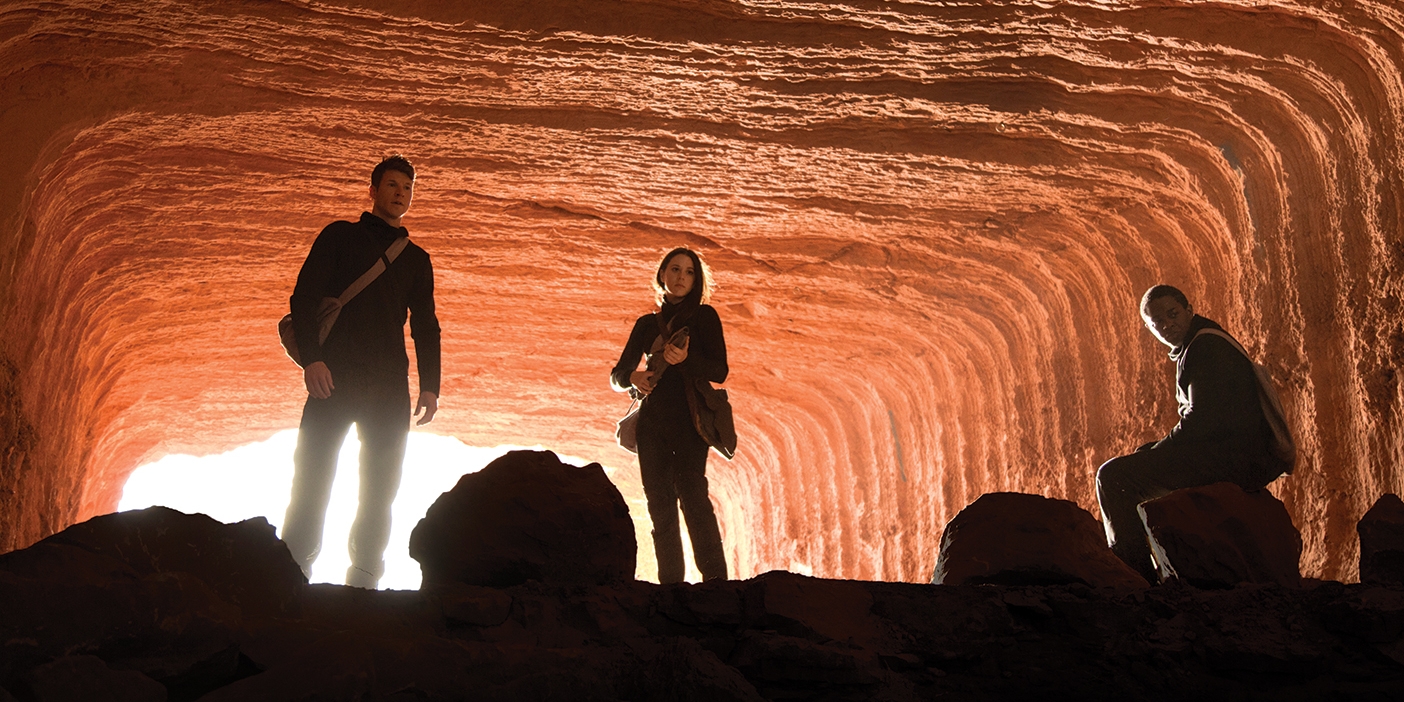By Cynthia Hallen, ‘80
Slips and spills and laughter and learning are all part of achieving beauty on ice and in life.
Ice-skating is the only sport for which I have any native talent. Notwithstanding my height, I am a severe disappointment to teammates in basketball and volleyball. But the minute my feet touch the ice, my sinews and synapses rejoice and I feel an exhilaration I cannot hide. I have to smile. In skating I lose myself. Where I am, not who I am, is what matters. I am just a particle, darting in and out of valences, on a path that is neither arbitrary nor predetermined. The game is to round the circumference as skillfully as possible without hurting myself or anyone else. The quest is emulate those with greater experience, talent, or technique.
In the Wisconsin winter of my third grade year, our Brownie troop was having a skating party at the local baseball field, which had been flooded and frozen. So I found my mother’s old ice skates in Grandma’s basement. We had to stuff newspaper in the toes of the size-10 boots, and the dull blades made balancing difficult. Nevertheless, the childhood “scrapes” of Amy and Jo in Little Womenseemed nearer as I scraped around in the frostbitten air.
In high school, when I saw skaters at the indoor rink in a Phoenix shopping mall, I had to laugh out loud. The combination of effort and ease, of inertia and gravity, of power and weakness, of happiness and humility, overwhelmed me with delight. Here were people willing to make fools of themselves in order to achieve something fun and beautiful. Here were fleeting creatures and creeping things—screaming and laughing and racing and bungling and bumping and falling down, all trying to ride the glide of lovely classical music. The juxtaposition was divine. I had to join them. I was born to skate.
I can do anything on skates if I practice long and hard enough. Last year, I finally toe-picked left forward, hopped, and did a half turn onto my right foot backwards for the waltz jump. Vicky, my coach, got tears in her eyes; she always cries when her students do their first jump. I have yet to master the spin, to let my spine become the axis of my body like a revolving world. I am afraid to line up and let go. But that will come in due time.
Falling is nothing to be ashamed of in the world of skating. In the Olympics, gold medal winners sometimes fall down. If Kristi Yamaguchi could risk a spill in front of millions of people, then I could risk skating my little program for the local 2001 Utah Winter Games competition at the Peaks Ice Arena in Provo. My coach enrolled me in the Adult Bronze section, for mature skaters of all ability levels.
My music was a one-and-a-half-minute selection from the Fantasia on Greensleeves, by Ralph Vaughn Williams. My costume was a shell peach princess dress with lace overlay that I found at Deseret Industries for $10. My sequence was a left outside three turn, a back-to-front one-foot turn, three front crossovers, three power three turns, two backwards crossovers, a waltz jump, a half toe loop jump, two alternating outside spirals, and a two-foot spin to finish.
My kindly neighbors came to watch. I did not fall; I did not miss any moves. I turned like a jewel-box ballerina, skating in a shining universe of grace, peace, and power. My teacher was jubilant. The joy made me laugh—all day long and all the way home.
My family in Phoenix laughed, too, when we watched the video of my performance.
“How come it’s in slow motion?” my brother Mike teases.
“Because it was a slow song,” I rejoin. “You missed my jump! There’s the other one!”
My sister Diana rewinds the video for a replay of the jumps. “Wow, what altitude,” razzes Mike. They can barely perceive the lift and rotation that had seemed like climbing Mount Everest to me.
My ranking in the contest appears at the bottom of the screen. “Wow, you won fourth place!” says Diana.
“Yeah, but there were only four skaters in our age bracket,” I giggle.
We watch it again, and then we all laugh again, marveling that I have finally developed my one and only athletic talent and continued to rejoice in my eternal progression.
Ice is time and the rink is eternity. And skaters, young or old, amateur or professional, are children forever.
Cynthia Hallen is an associate professor of linguistics at BYU and a member of the Timpanogos Figure Skating Club in Provo.










